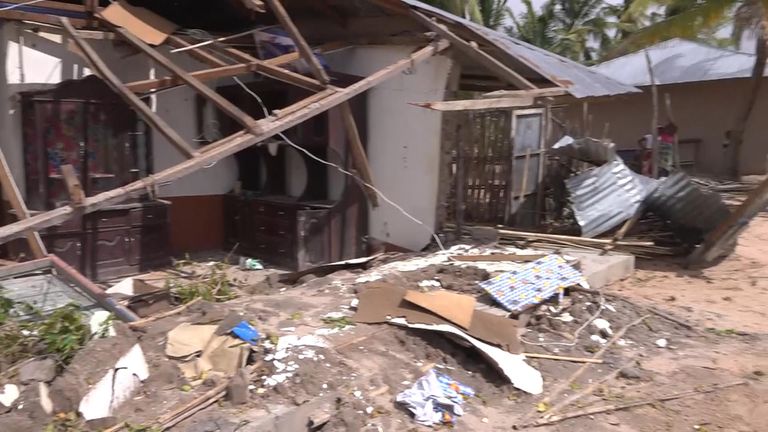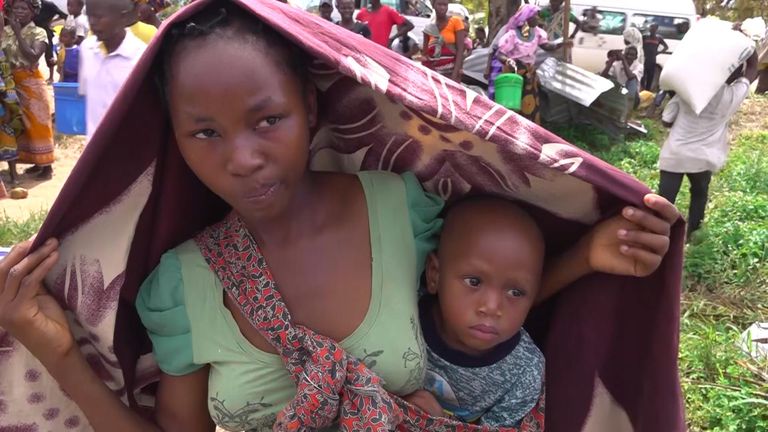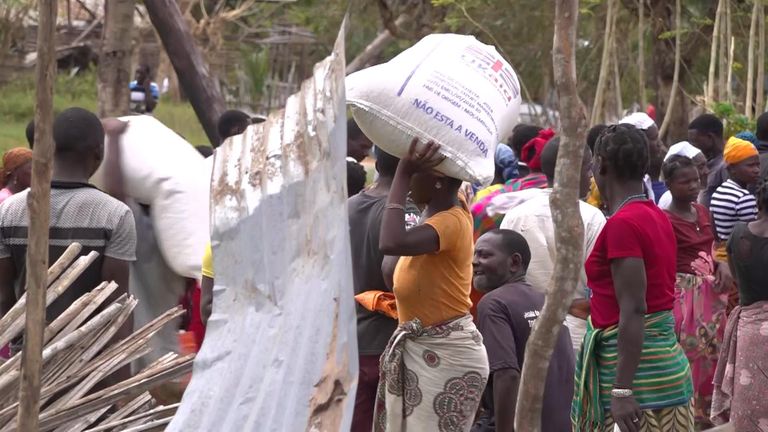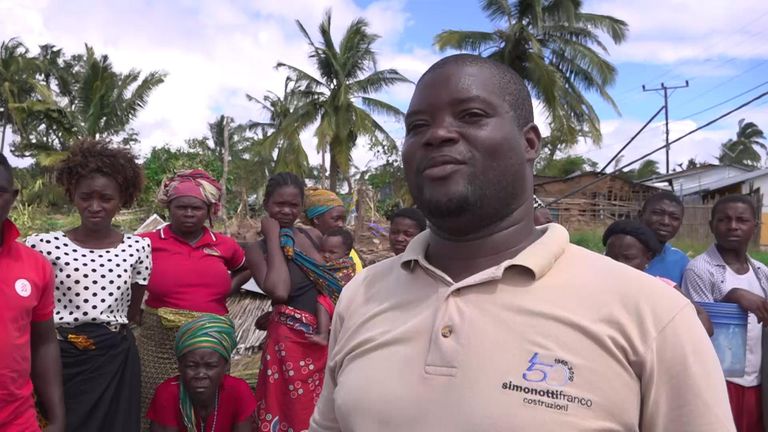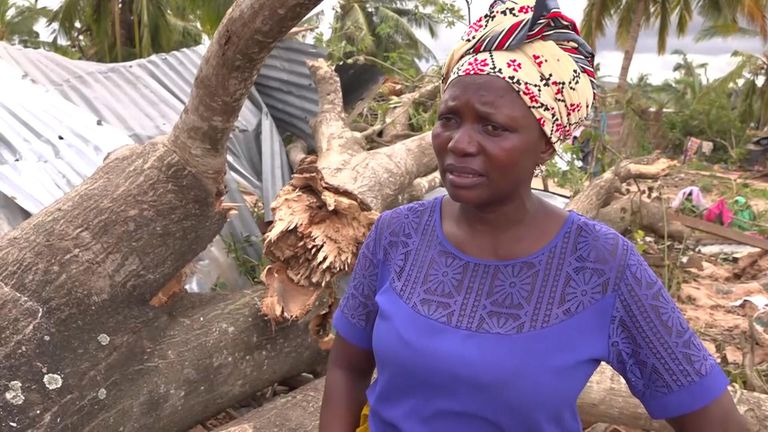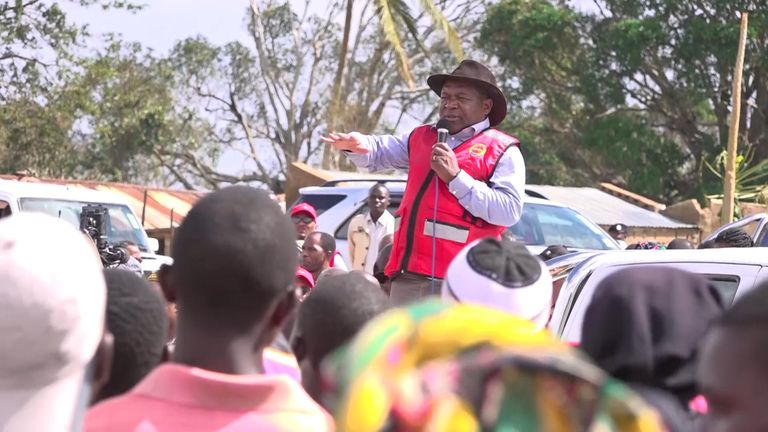Yet this isolated town found itself in the eye of the storm when a weather system called Kenneth tore through the community. Nothing here was left untouched.
The meteorologists say it is the first time in recorded history that cyclone has tracked this far north in Mozambique and the town’s residents still seem shocked.
“I have never heard anything like it. I have never seen anything like it,” said one woman.
There was a welcoming sight in the centre of town however, in the form of dozens of bags of food.
The first shipment of aid was unloaded from a rickety-looking truck and hundreds of people stood around in anticipation. Most residents have not had a proper meal in a week.
However, arguments and scuffles soon broke out as everyone tried to claim a share. I spoke to one exasperated official who was trying to distribute the supplies.
“The problem? I’m organising 20 packages for 27 families and they don’t want to be organised. That’s the problem you get in situations like this.”
We found a woman called Celestina Vanito in the queue for packages of beans. She is teacher and a mother of six and she looked like she was carrying a heavy burden.
“A tree fell on my house,” she said. “I have lost everything. Everything. Plates, food, beds, there is nothing’s left. I didn’t take anything.”
She was given half a pail of beans by a local government official and decided to walk back home – or at least, to what was left of it.
Her home had been completely demolished by what looked like an impossibly large mango tree. I asked her where she and her children were when it came crashing down.
“On that day of the wind and the rain, I took the children to shelter at my neighbour’s. When we returned a couple of hours later, I saw that tree was on my house.”
Ms Vanito shook her head as she surveyed. “I am numb and I don’t know what to do.”
We found the president of Mozambique, Filipe Jacinto Nyusi, just up the road, speaking to a sizeable crowd from the back of pick-up truck. He had brought along members of his cabinet and told the assembly he was going to try to get things fixed up.
A little later, I asked him whether his administration was struggling to respond to what is the second natural disaster in six weeks. Cyclone Idai struck the coast near the port city of Beira in March, killing 600.
“It is very difficult for us, nobody is prepared to deal with these kind of problems, we are trying to do our best.”
President Nyusi seemed to criticise the aid agencies now working in the country. It would be better he suggested, if his administration was given the money directly.
“Importantly people say they are going to give money or food, but they are giving through NGOs, some organisations, it is not easy because we know very well what people’s needs (are) ….
“Are you saying that the aid doesn’t go to the right places?” I asked.
“We are receiving information but we don’t know exactly (where),” said the president.
The storm has torn this community apart and it seems clear that the people who run the country are struggling.


